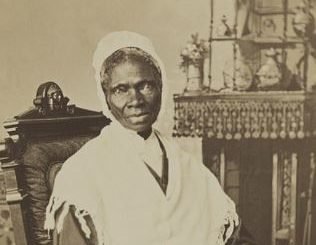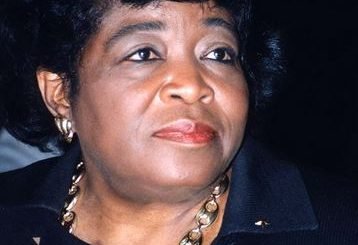Greatest African-American Civil Rights Activists of All Time and their Achievements
The Civil Rights Movement in America produced a variety of leaders with different character traits and leadership styles. But the common denominator among those people was their unwavering dedication to securing social justice at all cost.
These men and women were completely determined to speak out against slavery, hatred, oppression and inequality in all shapes and forms. They never let themselves be fazed by the task ahead of them. And the lives they lived were perfect reflections of the sheer amount of passion and commitment that kept them working day and night for a future that allows all the races in America to thrive to be their absolute best and live in a land where the color of one’s skin does not stand in the way of personal progress and the pursuit of happiness.
It is no accident that the men and women that we are about to explore continue to live in the hearts and minds of all Americans as heroes of their generation.
Here, in alphabetical order, we present the greatest African-American civil rights activists of all time, including their shared passion for advocating for the disenfranchised in our nation.
Booker T. Washington
Born – 1856
Place of birth – Hale’s Ford, Virginia, United States
Died – November 14, 1915; Tuskegee, Alabama, United States
Most famous works: The Future of the American Negro (1899), Up from Slavery (1901), Character Building (1902), Working with the Hands (1904)

African American civil rights activist and educator Booker T. Washington is remembered for speaking up against all kinds of discrimination and abuses meted out to Blacks in the United States. As he was born in 1856, Booker T. Washington is considered as one of the last generation of African American leaders who grew up in slavery. Not until he was around the age of nine did he and his family gain their freedom kind courtesy to the Emancipation Proclamation in the 1860s.
In spite of those harsh conditions he endured as a child, Booker T. was determined to let nothing stop him from developing himself and becoming an influential figure in the fight against Jim Crow laws and the disenfranchisement of blacks in the South.
As the leader of the famous Tuskegee Institute (now Tuskegee University), he spent much of his career creating educational and business opportunities (through the National Negro Business League) that he believed would help instill dignity and self-esteem among blacks. His vision for African Americans is most summarized in the famous “Atlanta Compromise” speech he gave on September 18, 1895. The educator argued in favor of using vocational education, entrepreneurship, and robust industrial jobs as means to uplift not just the economic conditions of the disenfranchised but also allow blacks to fully participate in the political environment.
Frederick Douglass
Born – c. 1817
Place of birth – Cordova, Maryland, U.S.
Died – February 20, 1895, Washington, D.C., U.S.
Most famous works: Narrative of the Life of Frederick Douglass, an American Slave (1845); My Bondage and My Freedom (1855)
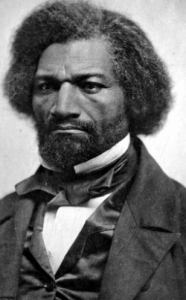
In one of his most famous quotes, Frederick Douglass, a former slave, said, “Knowledge makes a man unfit to be a slave”. The quote is a powerful statement that reflects the kind of dedication American civil rights activist and abolitionist Frederick Douglass paid to uplifting the Black race from the drudgery of slavery.

In the mind of Douglass, education was one of the most potent ways out of the poverty and injustice. He also fought against an institutionalized system in America that secured the happiness of the white man at the price of the black man’s misery and perpetual bondage. Douglass is famed for breaking free from slavery in Maryland and then going on to lead a fierce campaign against slavery.

A writer of three very critically acclaimed autobiographies, Frederick Douglass holds the distinguished honor of being the first African-American nominated for Vice President of our dear nation. He was nominated as the running mate of fellow rights activists Victoria Woodhull of the Equal Rights Party. Owing to the plethora of achievements that he chalked, many historians often regard him as the most influential African American of the 19th century.
Life and Major Accomplishments of Richard Lee Jones (1893-1975)
Harriet Tubman
Born – c. 1822
Place of birth – Dorchester County, Maryland, U.S.
Died – March 10, 1913; Aurburn, New York, U.S.
Most famous for – her dedication to the freedom of enslaved people

Harriet Tubman certainly deserved the semi-military honors at Fort Hill Cemetery in Auburn following her death in 1913. An influential African American abolitionist and civil rights activist of the 19th century, Harriet Tubman is most known for escaping the clutches of her slave master in Maryland and then going ahead to be an instrumental player in helping countless slaves escape to safe places.
Nicknamed “Moses”, Harriet Tubman was known for her selfless commitment to the plight of many enslaved African Americans. This was evident during the American Civil War (1861-1865), when she put her life on the line to liberate more than 700 enslaved people. As a result of this and many more other accomplishments of hers, she’s been praised as one of the most famous African Americans in the history of the United States. Her works served as huge inspiration to countless Americans, including many of the civil rights activists on this list.
John Lewis
Born – John Robert Lewis
Date of birth – February 21, 1940
Place of birth – Tory, Alabama
Died – July 17, 2020, Atlanta, Georgia
Honors – Presidential Medal of Freedom (2011), Spingarn Medal (2002), Liberty Medal (2016)

Always a proponent of nonviolent activism, the Alabama-born social justice warrior John Lewis also participated in the Selma to Montgomery marches in 1965. The marches were aimed at securing voting rights for many disenfranchised African Americans and other minorities living in the United States.
John Lewis needs little introduction as he is one of the most famous African-American civil rights activists ever. A 2002 NAACP Spingarn Medal award winner, John Lewis made his big entry into the world of civil rights activism in 1963 when he was elected chairman of the Student Nonviolent Coordinating committee (SNCC). In that role, he played a big part in the organization of the famous 1963 March on Washington, a historic event that saw people (about quarter of a million people) from all walks of life march for civil and economic rights for America’s most disenfranchised minorities. At that event, Lewis was in the company of leading figures like MLK, Bayard Rustin and A. Philip Randolph.
Lewis’ efforts, along with that of many others, are credited with helping the Voting Rights Act of 1965 get past the finish line. Lewis was also a vocal critic against racial segregation, especially racial segregation in public schools in America.
Desiring to do more, John Lewis took an even greater enthusiasm to Capitol Hill, as he got elected to Congress in 1986. The 2011 Presidential Medal of Freedom recipient went on to have an illustrious 17-term in the U.S. House of Representatives, representing the good people of Georgia’s 5th district until his death in 2020. His death was greatly mourned by leaders from both sides of the political aisle.
Malcolm X
Born – May 19, 1925
Birth place – Omaha, Nebraska, United States
Died – February 21, 1965; Manhattan, New York, United States
Most famous speeches: “Message to the Grass Roots” (November 10, 1963), “The Ballot or the Bullet” (April 3, 1964)
Other works: The Autobiography of Malcolm X (1965)

Known as a civil rights leader whose immense energy and oratory prowess placed him as one of the greatest Americans of the 20th century, Malcolm X began his activism guided by a radical viewpoint. His turbulent childhood had made him an extremely bitter individual who often found himself on the wrong side of the law. Malcolm X would emerge from his 10-year prison sentence a changed man and a man bent on uplifting the Black race. Initially a leading member of the Nation of Islam (NOI), Malcolm X’s approach to civil rights activism was in sharp contrast to the nonviolent stance the likes of Martin Luther King Jr. and Roy Wilkins used.
The Omaha, Nebraska-born activist advocated for the complete separation of black and white Americans. However, with the progression of time, the African-American Muslim minister steadily made it toward a more moderate stance, calling for increased tolerance and respect among the races in America. Although a controversial leader of the civil rights movement, Malcolm X’s legacy is rooted in the impact he had across many African American communities in the country.
Malcolm X is credited with the founding of organizations like the Pan-African Organization of Afro-American Unity (OAAU) and the Muslim Mosque, Inc (MMI). Sadly, just as he was about to join forces with the more liberal voices of the civil rights movement, his life was cut short. The 39-year-old was assassinated on February 21, 1965.
Today, all across the nation, the Malcolm X Day (celebrated in May) is used to honor his hardworking efforts in instilling pride and the self-esteem among many minorities in America.

Did you know: Malcolm X was involved in the foundation of the Organization of African Unity in 1963?
Martin Luther King Jr.
Born – January 15, 1929
Place of birth – Atlanta, Georgia, United States
Death – April 4, 1968
Place of death – Memphis, Tennessee, United States
Honors and awards – Spingarn Medal (1957), Nobel Peace Prize (1964), Presidential Medal of Freedom (posthumously 1977), Congressional Gold Medal (Posthumously, 2004)
Most famous works – Stride Toward Freedom (1958), Strength to Love (1963), Why We Can’t Wait (1964)

Martin Luther King Jr. was a prominent civil rights leader whose nonviolent activism and impassioned speeches helped advance equality and justice for African Americans in the United States.
Although it’s been more than 50 years since the death of Martin Luther King Jr., people from all over America and the world at large continue to take inspiration from the American Baptist minister and renowned civil rights leader. This fact is testimony to the sheer impact the 1967 Nobel Peace Prize winner had by using nonviolence and civil disobedience techniques to get his message across.
King Jr. is most famous for leading several civil rights marches, famous among them were the three Selma to Montgomery marches in March 1965 and the March on Washington for Jobs and Freedom in 1963. It was at the later that he gave one of the most famous speeches of the 20th century, the historic “I Have a Dream” speech. The speech, which called on America to do away with racism and grant civil and economic rights to disenfranchised citizens, is often praised as one of the most defining moments in our nation’s history.
He was a true visionary, a man with very rare intellectual and oratory gifts, who always remained optimistic about how America as a nation could get past its dark history and unite to build a better future for all people, regardless of their race, political affiliation, and gender. It is for this reason many Americans as well as the world general hold him in high regard.
Read More: 7 Major Accomplishments of Martin Luther King Jr.
Medgar Evers
Born – July 2, 1925
Place of birth – Decatur, Mississippi, United States
Death – June 12, 1963
Place of death – Jackson, Mississippi, United States
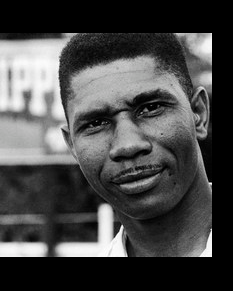
Born on July 2, 1925 in Decatur, Mississippi, Medgar Evers was a seminal figure in the civil rights movement who braced himself very well to deal with the harsh racial conditions in Mississippi, the hot bed of racial tensions in the 1960s. A World War II veteran, Evers came back from Europe and was taken aback by the unchanging racial situation in his home state Mississippi.
Having personally witnessed numerous atrocities, including lynching, that were meted out to blacks and other minorities, he decided to throw his weight behind organizations such as the Regional Council of Negro Leadership (RCNL) and the National Association for the Advancement of Colored People (NAACP). He served as the field secretary of the latter organization, working very hard to create better economic opportunities for African Americans.
Evers was also instrumental in campaigning for voting rights for blacks. His efforts were praised all across the nation, particularly from fellow African American civil rights activists. In 1963, he was honored by the NAACP with the Spingarn Medal for his immense contribution in the fight against racial segregation in public schools. Unfortunately, Evers life was cut short that very year when he was assassinated by a white supremacist and KKK member Byron De La Beckwith.
Rosa Parks
Born: February 4, 1913
Place of birth: Tuskegee, Alabama, U.S.
Died: October 24, 2005; Alabama, U.S.
Awards and honors: NAACP Spingarn Medal (1979); Martin Luther King Jr. Award (1980), Presidential Medal of Freedom (1996); Congressional Gold Medal (1999)
Nickname – Mother of the Modern Civil Rights Movement
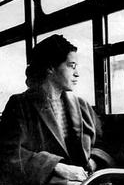
Widely regarded as “the first lady of the civil rights”, Rosa Parks was a leading civil rights activist whose refusal to give up her seat to a white passenger catapulted her to the limelight. Her action that day spurred on a series of campaigns, particularly the Montgomery Bus Boycott, to end racial segregation and institutional racism in America. Rosa Parks collaborated with some of the most famous civil rights campaigners of the 1950s and 1960s, prominent among them was Martin Luther King Jr.

The Tuskegee, Alabama-born activist spent the bulk part of her life fighting to emancipate African Americans from centuries’ old suppression, racial abuse and hatred. She was a member of the Montgomery chapter of the National Association for the Advancement of Colored People (NAACP), serving as the secretary of the chapter for quite some time. In that position, she and the NAACP fought to secure justice for many African American women that had suffered physical and sexual abuse at the hands of racist white supremacists in Alabama.
Her unwavering commitment to civil rights issues in America earned her enormous praises during and after her lifetime, including receiving the two highest civilian honors of our nation – the Presidential Medal of Freedom (1996) and the Congressional Gold Medal (1999). Upon passing away (in 2005), she became the first African American woman to lie in honor in the Capitol Rotunda, Washington, D.C.
Read More: 10 Frequently Asked Questions about Rosa Parks
Roy Wilkins
Birth – August 31, 1901
Place of birth – St. Louis, Missouri, United States
Died – September 8, 1981; New York City, New York, United States
Awards and honors – Presidential Medal of Freedom (1969), Spingarn Medal (1964)
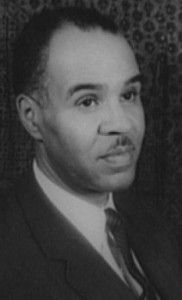
Roy Wilkins and leaders of the Civil Rights Movement in the 1950s and 1960s brought unique perspectives and strategies that collectively shaped the course of civil rights in the U.S.
An African-American leader of the civil rights movement, Roy Wilkins played an important role in campaigning for the end in racial segregation in public schools in America. Wilkins devoted more than four decades of his life working for the NAACP, a prominent civil rights organization that thrives to promote social and economic justice for African Americans. In 1931, He entered the NAACP as the assistant to then NAACP leader Walter Francis. He would then go on to serve as the editor of The Crisis, the official newspaper of the NAACP. From 1955 to 1977, he led the organization, first as the executive secretary and then later as the executive director.
Roy Wilkins is best remembered for organizing the March on Washington in 1963 and then later having several productive dialogues with a number of U.S. presidents. For his efforts in coordinating a legislative campaign to secure the passage of the Civil Rights Act of 1964 and the Voting Rights Act of 1965, Wilkins has been described as the “Senior Statesman of the Civil Rights Movement”. In 1969, he was honored by President Lyndon Johnson with the Presidential Medal of Freedom.
Sojourner Truth
Born – c. 1797
Place of birth – Swartekill, New York, U.S.
Died – November 26, 1883; Battle Creek, Michigan, United States

In 1826, Sojourner Truth, then in her late twenties, took a bold decision to break free from the abuse, dehumanization, and nightmarish conditions that she and her family had been subjected to for decades. The woman, who had been born a slave, carried her infant daughter, Sophia, and made her way to New York. She would then go on to win the freedom of her son Peter, who had been illegally sold by her former slave master. She thus became one of the first black women to win a court case against a white man.
A deeply religious woman, Sojourner Truth wholeheartedly believed that God had destined her to liberate her people. She was also active in the women’s suffrage movement. Her 1851 “Ain’t I a Woman?” speech at the Ohio Women’s Rights Convention in Akron, Ohio, has been etched into the annals of American history due to its powerful nature. Like Harriet Tubman, Sojourner Truth stood on the side of the Union Army during the American Civil War. She tirelessly worked to recruit African Americans for the Union Army. It is therefore not surprising that she made the Smithsonian magazine’s list of “100 Most Significant Americans of All Time”.
Read More: 10 Most Famous Americans of the Civil War Era
Frequently asked questions about African American Civil Rights Leaders
Explore key figures from the Civil Rights Movement, their contributions, ideologies, and impact on advancing African American rights in the U.S. through these frequently asked questions about notable leaders.
What was Malcolm X’s stance on civil rights?
Malcolm X, a minister and human rights activist, initially advocated for Black nationalism and separatism. However, after his pilgrimage to Mecca, his views evolved, emphasizing unity and human rights, though he still emphasized Black self-defense and empowerment.
Who was Rosa Parks and what did she do?
Rosa Parks was an African American woman who, in 1955, refused to give up her bus seat to a white passenger in Montgomery, Alabama, sparking the Montgomery Bus Boycott.
What significant role did Medgar Evers play?
Medgar Evers was the NAACP’s first field secretary in Mississippi. He organized boycotts and investigations into crimes against Black people. Evers was assassinated in 1963 for his activism.
How did Ella Baker contribute to the movement?
Ella Baker was instrumental in organizing grassroots initiatives and was key in the formation of the Student Nonviolent Coordinating Committee (SNCC). She believed strongly in participatory democracy.
Was Bayard Rustin involved in the Civil Rights Movement?
Yes, Bayard Rustin was an openly gay civil rights activist best known for organizing the 1963 March on Washington and mentoring Martin Luther King Jr. on nonviolent protest methods.
How did Fannie Lou Hamer contribute to voting rights?
Fannie Lou Hamer was a voting rights activist and community organizer. She co-founded the Mississippi Freedom Democratic Party and testified in 1964 about voting rights violations in the South.
Who were some notable African American women leaders in the movement?
Notable women leaders include Rosa Parks, Ella Baker, Fannie Lou Hamer, Dorothy Height, Septima Poinsette Clark, Jo Ann Robinson, and many others.
What role did the NAACP play in the Civil Rights Movement?
The NAACP (National Association for the Advancement of Colored People) played a crucial role in the movement, using litigation strategies to challenge segregation and disenfranchisement, most notably in the Brown v. Board of Education case.
How did leaders like Martin Luther King Jr. and Malcolm X differ in their approaches?
While both sought equal rights for African Americans, King advocated for nonviolent civil disobedience and integration, whereas Malcolm X initially supported Black separatism and self-defense, though his views evolved later in his life.
READ MORE: Carter Godwin Woodson, the African American Historian and Founder of Black History Month

